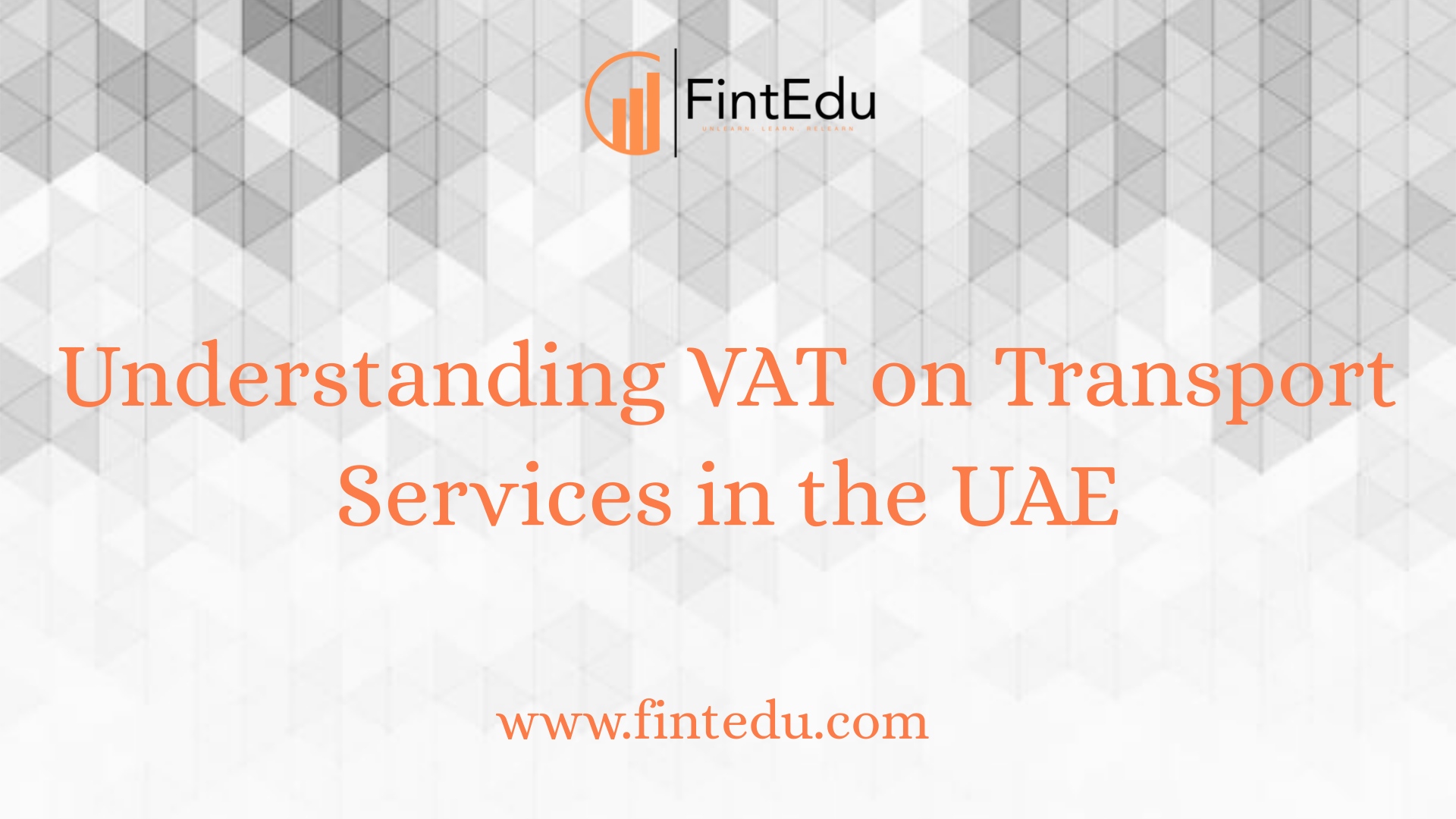LISTEN TO THIS ARTICLE
Value Added Tax (VAT) stands as a cornerstone of the UAE's economic structure, introduced in 2018 to diversify revenue sources away from oil dependence. In the realm of transportation services, understanding the intricacies of VAT is paramount for businesses navigating the UAE market.
In this write-up, we have provided an overview of VAT application, rates, exemptions, and implications within the transportation sector, empowering businesses to maintain compliance and financial stability.
Understanding VAT in the UAE
VAT is a consumption tax levied at each stage of the supply chain, with the ultimate burden borne by the final consumer. In the UAE, VAT was implemented on January 1st, 2018, at a standard rate of 5%. Businesses meeting specific revenue thresholds are mandated to register for VAT, while voluntary registration is an option for those surpassing a lower threshold. Compliance involves electronic filing of VAT returns at regular intervals.
VAT on Transportation Services
Standard Rate (5%):
Most goods and services fall under this category, including transportation services. This includes:
- Local transportation of goods and services;
- Local transportation of passengers for pleasure or sight-seeing (eg. Cruises, private jet services);
- Import of vehicles.
Zero Rate (0%):
Transport of certain goods and services, enjoy a zero VAT rate, viz.
- International transportation of goods and passengers, including transportation within GCC countries;
- Transport related services (repairs, maintenance, catering, ground handling etc.) in connection with the above.
International passenger transport services by aircraft that constitute "international carriage" are subject to the standard 0% rate, even if they have stopovers within the UAE.
Exempt:
Domestic passenger transportation, encompassing taxis, buses, trains, and similar modes of transport within the UAE is entirely exempt from VAT.
Businesses operating within free zones must adhere to special VAT regulations specific to each zone.
The difference between zero rating and exemption lies in the ability to claim VAT credit. Businesses can claim back VAT paid on expenses related to zero-rated supplies. However, in case of exempt supplies, VAT is not charged, and businesses cannot claim back VAT paid on expenses.
Practical issues
One of the crucial elements of VAT compliance is the determination of the nature of supplies under which your goods or services are covered – whether under the standard rate, zero rate or the exempt category. Challenges may arise in real-life scenarios where:
- Goods and services are invoiced in a composite manner and both fall under different categories;
- Multiple services may be provided for the purpose of international passenger transport, however, all services may not be exempt, for example, in the shipping industry; or
- Where there are multiple parties involved in a single transaction.
Conclusion
Many a times, taxpayers may not be aware that their supplies may be covered under the zero-rated or the exempt category and may continue to levy VAT at the standard rate. At the same time, some taxpayers may be considering the entire supplies as zero-rated or exempt though a part of the supplies may be taxable. Therefore, it is always advisable for taxpayers to seek professional help for the purpose of VAT compliance in the UAE.
Disclaimer: Content posted is for informational and knowledge sharing purposes only, and is not intended to be a substitute for professional advice related to tax, finance or accounting. The view/interpretation of the publisher is based on the available Law, guidelines and information. Each reader should take due professional care before you act after reading the contents of that article/post. No warranty whatsoever is made that any of the articles are accurate and is not intended to provide, and should not be relied on for tax or accounting advice.
Contributor
Related Posts

Qatar, 05 January, 2026: The General Tax Authority (GTA) has announced that the tax return f...
Read More
Bahrain, 05 January, 2026: Bahrain’s government has unveiled a comprehensive fiscal reform ...
Read More
Oman, 05 January, 2026: The Tax Authority has announced the postponement of the Digital Tax Sta...
Read More